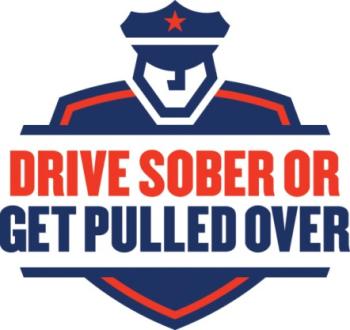The Maine Bureau of Highway Safety
‘Drive sober or get pulled over’ campaign is on through Sept. 4
Wed, 08/16/2023 - 11:00am
The National Highway Traffic Safety Administration (NHTSA) national “Drive Sober or Get Pulled Over” campaign will take place from Aug. 16 through Sept. 4. The Maine Bureau of Highway Safety has awarded federal funds to municipal, county and state law enforcement agencies to increase patrols focused on impaired driving. During this campaign, Maine law enforcement agencies will use high visibility enforcement tactics to prevent fatalities and serious bodily injuries associated with impaired driving.
“Maine Law Enforcement Officers are exceptionally versed when it comes to detecting impaired drivers. These officers have made a real commitment to attend training and seek out other educational opportunities geared toward sharpening their detection skills,” said Lt. Dana Thompson of the Gorham Police Department. “Their experience has made them extremely effective at conducting roadside evaluations, administering field sobriety tests, and identifying alcohol and/or drug impaired drivers. Night and day, officers are purposefully pursuing impaired drivers to make Maine communities safer.”
Highway Safety Director Lauren Stewart said, “If you find yourself impaired and you need to get home, give your keys to a sober driver, or call a public transportation service. The irresponsible decision to drive while under the influence of alcohol and/or drugs puts you, your passengers and everyone on the road at risk.”
Several Maine Law Enforcement Agencies have Drug Recognition Experts (DREs) and Forensic Phlebotomists on staff. These specially trained officers assist with impaired driving investigations after traffic stops and/or crashes. The DRE Officers are trained to recognize impairment in drivers under the influence of drugs and alcohol. A forensic phlebotomist is trained to collect a blood sample from suspected impaired drivers for evidentiary purposes.
The following predictable effects on driving impaired at certain blood alcohol concentration (BAC) levels is something to consider: At a BAC of .02 a person’s visual functions start to decline, and they start to lose their ability to perform two tasks at the same time; at a BAC of .05 a person’s coordination gets reduced, steering a motor vehicle can become difficult and response to emergency situations slow down; with a BAC of .08 a person experiences reduced concentration and impaired perception; with a BAC of .10, a person has reduced ability to maintain their vehicle’s lane position and their ability for appropriate braking is reduced; with a BAC of .15 a person experiences substantial impairment in their ability to control a vehicle and their visual & auditory processing is reduced.
Here are a few safe solutions to help prevent impaired driving: Always drive 100% sober or choose a designated driver that you can trust. If it’s your turn to be the designated driver, take your job seriously and don’t drink. If you’ve had too much to drink, call a taxi, Uber, ride-sharing service, a family member, or a friend to make sure you get home safely.
If you see a suspected impaired driver on the road, please contact a law enforcement agency immediately.The Maine Bureau of Highway Safety wants all motorists to avoid preventable consequences that are associated with Impaired Driving, so remember the following, “Drive Sober or Get Pulled Over”!



































.png)
.png)
